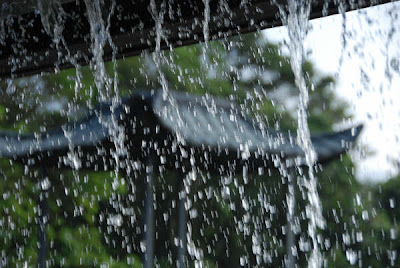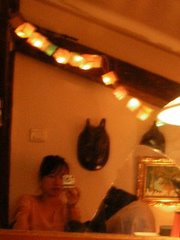THE JUNGLE NEGOTIATORS
 There had always been conflicts between the animals in the North Jungle and the animals in the South Jungle. Each accused the other of encroaching on its territory and was very critical of the other’s social system. The North Jungle condemned the South Jungle for its policies that seemed to favor the jungle violating the rights of the trees and the animals. The South Jungle condemned the North Jungle for neglecting the jungle by allowing too much freedom and license to the trees and the animals. It all came to a head over a dispute about the ownership of a piece of land between them. Because of this impasse it was decided to hold a meeting between both sides in a neutral territory, namely the West Jungle with monitors from the East Jungle.
There had always been conflicts between the animals in the North Jungle and the animals in the South Jungle. Each accused the other of encroaching on its territory and was very critical of the other’s social system. The North Jungle condemned the South Jungle for its policies that seemed to favor the jungle violating the rights of the trees and the animals. The South Jungle condemned the North Jungle for neglecting the jungle by allowing too much freedom and license to the trees and the animals. It all came to a head over a dispute about the ownership of a piece of land between them. Because of this impasse it was decided to hold a meeting between both sides in a neutral territory, namely the West Jungle with monitors from the East Jungle.Naturally the trees were unable to attend this meeting so they had to depend upon animals to represent them and all their resident creatures. The problem was which animals to send. Skunks would not be a good choice for ambassadors, because they don’t smell very pleasant. Even carefully perfumed, they would always have at hand their potential stink, should negotiations turn sour. Mice are clever little fellows, but seem far too tiny to make others take them seriously. No one trusts anything that snakes have to say. Lions and tigers would be too intimidating. Elephants and gorillas are too overwhelming. Mockingbirds can speak every language, but have nothing to say for themselves. Owls, of course, would be very wise, but it was feared that since they usually sleep during the day they would be too drowsy to stay alert during the daytime meetings.
The North Jungle finally decided to choose an eagle, because it didn’t live in either jungle and so had no personal interest in the disputed territory. The other side chose an otter from a neutral jungle, because there was no habitable stream for otters in the disputed territory, so it too would have no personal interest in how the dispute was settled.
When the conference began, the eagle contended that for centuries the disputed land had been settled by animals from the North Jungle without any claim ever being made for the land from the South Jungle.
True enough countered the otter, but for the last fifty years the North Jungle has done nothing whatever to develop the land and allowed without any opposition or complaint a large number of animals from the South Jungle to move into it and they are the ones who have developed it to its present state of prosperity with the help of subsidies from the South Jungle. The North no longer has any rightful claim to the land they ignored for so long. Why should the North reap the profits of the sweat and tears of the South Junglers?
The speeches of the eagle were applauded by the crowd of supporters of the North and booed by the supporters of the South, while the speeches of the otter were equally applauded by the crowd of supporters of the South and booed by the supporters of the North, so it was practically impossible to make any progress in the negotiation. In fact there was no negotiation.
Finally the eagle and the otter were so frustrated by the proceedings that they decided to meet together in secret without any observers to interfere. And almost at once they came up with what they expected would be an acceptable compromise.
Calling the meeting to order they announced their solution:
For years animals from both the North and the South have lived peacefully together in this territory without interference from either government.
Moreover, attracted by the natural beauty off the area, animals from North and South as well as those from East and West have flocked to the area to admire its natural attractions without any objection from either government.
Finally, the territory in dispute is not very large, so that its annexation to or secession from either Jungle has practically no significance given the already large size of each Jungle’s territory.
So we propose that the area in question be declared an Inter-jungle Park under the joint jurisdiction of the North and South Jungles between whose boundaries it is located. The present inhabitants shall continue to live there each retaining his/her original citizenship and the territory will be developed and facilities built to turn it into an ecological park for international tourism.
The plan was well received and after discussion to work our particular details, it was unanimously adopted. Both sides won and both sides lost, while the Jungles everywhere gained a beautiful model for ecological management and a wonderful site for vacation travel.
There are lessons hidden here.
The secret to successful compromise
is willingness to lose a little in order to gain much.
The difficulty is in getting the people involved
to agree on what will be lost and what gained.
The negotiators have the tricky task
of convincing both sides
that what they gain is better
than what they lose.
Watch Bob's telling a tale he wrote:
The Great weapon
(Photo by C.P.)
(Photo by C.P.)
.jpg)




